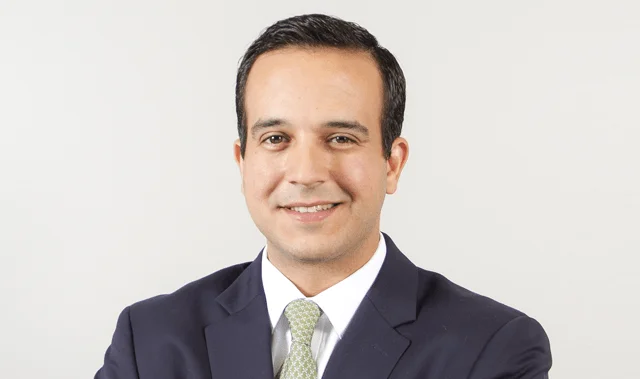Houston Immigration Lawyers
Several regions across the state of Texas are experiencing strong economic growth, thanks in no small part to the efforts of skilled professionals and entrepreneurs from other countries who choose to live and work in the U.S. The immigration attorneys at BBA Immigration are here to facilitate that process and help your business grow and thrive in today’s global, competitive economy. If you are an employer working in Texas’ energy sector, the tech industry, or other booming sectors, BBA Immigration can help you acquire the talent you need. If you are a scientist, engineer or skilled professional living abroad, BBA Immigration can help you find the right ways to live and work in the United States, with or without a sponsor. And if you are a foreign entrepreneur looking to build a new business in the states or invest in an existing American enterprise, then BBA Immigration can guide you and assist you to make your dreams a reality. From our Houston headquarters, our knowledgeable immigration law firm represents clients in Dallas, Midland, Austin, San Antonio, and throughout the state of Texas and beyond. Call our experienced Houston immigration lawyers today.
Immigration Legal Help From Attorneys Who Know the U.S. Immigration System Inside and Out
At BBA Immigration, we know firsthand how hard it is to gain authorization to live and work in the United States. Our firm’s partners, Diego Bustillos and Adriana Bello, as well as many of our associates, are immigrants ourselves. We’ve been through the process ourselves, and we know it isn’t easy. We combine our legal skills and training with our personal experiences to help you demonstrate your value to the United States and employers through your skills, investment, and other abilities or expertise you bring to the table.
Our mission at BBA Immigration is to help your application be a success. We accomplish this through the amount and quality of research we put into your specialty occupation to truly demonstrate your value. We don’t just let you tell us what you do and stop there; our experienced EB1 and EB2 visa lawyers know the right questions to ask, that will be most relevant and probative for your application. We conduct our own independent research as well to help make your application as strong as possible so it can be approved expeditiously and successfully.
The Experience and Expertise Your Business Needs
Our Houston immigration lawyers at BBA Immigration understand the needs of U.S. businesses in Texas and those of foreign companies as well. Our firm has extensive experience and a great deal of expertise handling immigration matters in the oil and gas industry as well as other energy sectors, including wind and solar. If you are an engineer or scientist or an employer or entrepreneur in the energy or tech sector, BBA Immigration is the law firm you need when it comes to meeting your immigration goals.
- EB-2 NIW – We help foreign workers with advanced degrees or exceptional ability apply for national interest waivers and self-petition to immigrate to the U.S. without a job offer or labor certification. We’ll take the time to understand your background, and we’ll build a strong case that proves you possess the criteria for the EB-2 visa with or without a National Interest Waiver.
- EB-1A – Over a fourth of all employment-based immigration comes in under the first preference category for workers with extraordinary ability, as well as outstanding professors and researchers and certain multinational managers or executives. We help individuals and their petitioning employers put together persuasive petitions that convincingly establish their value and show how they meet the criteria for demonstrating extraordinary ability.
Texas Immigration FAQs
U.S. immigration is a highly specialized and technical area of the law. As a person seeking to immigrate to the U.S., or as an American employer needing to hire foreign workers, the legal terms and criteria can be confusing and hard to understand. Thankfully, all you really need to know is that BBA Immigration has the attorneys who understand these laws and have your best interests at heart. Below we’ve answered some of the questions we get most frequently as we help individuals and businesses in Texas and beyond with their immigration legal needs. If you have other questions or need immediate assistance with an immigration matter, contact our experienced Texas immigration lawyers today.
What is a “non-immigrant” visa?
The U.S. awards both immigrant and non-immigrant visas. A non-immigrant visa merely means that your stay in the U.S. is only intended to be temporary. Some temporary visas are issued for tourism, medical treatment, or study, for instance. However, many work-related and business-related visas are non-immigrant visas as well. The initial stay on the visa might be only for a few years, but these visas can often be extended for one or two-year periods for many years, sometimes indefinitely. It is also possible to apply for an adjustment of status to obtain a green card and lawful permanent residence. There are dozens of different ways to apply for permanent residence in the U.S. after entering on a temporary visa. Talk to us about your needs and goals, and we’ll help you find the visa that is right for your particular situation, whether it turns out to be an immigrant or non-immigrant visa.
How can I qualify for an EB-1 Visa?
The EB-1 immigrant visa is for workers of extraordinary ability in the sciences, arts, education, business or athletics, as well as outstanding professors and researchers, and certain multinational managers or executives. Over one-fourth of all employment-based visas are awarded in this first preference category, making it highly competitive. BBA Immigration can help you understand the specific criteria for your particular category and put together a strong petition that demonstrates your value as an individual of extraordinary ability.
Do I really need a million dollars to immigrate as an entrepreneur or investor?
A $1,000,000 investment is required to receive an EB-5 visa (or $500,000 for an investment in an area of high unemployment or certain rural areas). This investment is required to show your ability to create a certain number of jobs as well as your commitment to the enterprise. However, you could also seek to immigrate as an E-2 treaty investor or E-1 treaty trader without having to commit to an investment of a certain dollar amount. We can discuss with you in more detail what is required for an E-1 or E-2 visa and help you with a successful application.
How can I get an H-1B visa?
To qualify, you must work in a specialty occupation that requires the theoretical or practical application of a highly specialized body of knowledge. Typically, you would need to hold a bachelor’s degree or foreign equivalent and have a job lined up that pays the prevailing wage in your field. Petitions are accepted on April 1st of each year, but only about 65,000 visas are allotted. Since the government receives many more applications than there are visas available, a lottery system is usually employed. If you have an advanced degree beyond a bachelor’s (master’s or higher or its equivalent), then you can get placed into a different category with its own separate cap and lottery.
Can I immigrate without a sponsor?
Most immigration requires a sponsor in the U.S. to petition on your behalf. For family-based immigration, the sponsor agrees to be financially responsible for you while you are in the United States at least until you acquire 40 quarters of work credits or become a U.S. citizen. For employment-based immigration, your employer certifies an intent to hire you for a permanent position.
Two classes of workers can self-petition for immigration, meaning they do not have to have a sponsor or a job offer in hand. These categories include individuals of extraordinary ability or people who obtain a National Interest Waiver. BBA Immigration represents a wide range of individuals and businesses, including handling EB-1 visas for persons of extraordinary ability and obtaining national interest waivers for EB-2 visa applicants.
What happens to a person who entered the U.S. on a marriage visa and then later got divorced?
The immigrant ex-spouse could be placed at a very real risk for deportation, especially if the government thinks the marriage was a sham solely for immigration. We recommend you talk to an immigration attorney right away to explore your options. One solution, for example. might be to file Form I-752 Petition to Remove the Conditions of Residency.
Does an immigrant who marries a U.S. citizen become a U.S. citizen?
Not automatically. A person who enters the U.S. on a fiancé(e) visa should first apply for lawful permanent residence (Green Card). After three years of marriage, the immigrant spouse can apply for citizenship through naturalization, assuming the person is otherwise eligible for citizenship. U.S. immigration law imposes many requirements to become a citizen; we can help you understand what is required and prepare you for this important step.
Should I Contact BBA Immigration Today?
Yes! BBA Immigration is here to answer your questions and provide you with high-quality legal assistance for your business and employment immigration needs. Call our experienced Houston immigration lawyers today.
From South America to Texas and Beyond, BBA Immigration Is Here for You
BBA Immigration helps with U.S. immigration from around the world, including South America and the Republics of Colombia, Chile, and Argentina. Our Houston immigration attorneys hail from Argentina, Valenzuela, and San Antonio, Texas; we are truly a multinational law firm in that sense, bridging the gap and facilitating immigration exchanges between Texas and the Latin world. We offer services in both English and Spanish and are equipped to address all your immigration legal needs. Call anytime for a quick, 15-minute consultation to let us know your needs and find out how we can help. BBA Immigration is eager to hear from you and become your trusted immigration law firm.











